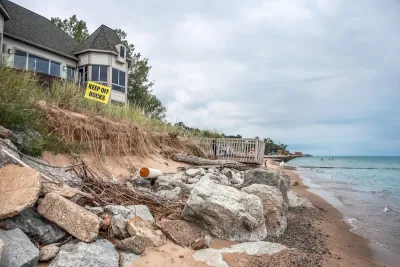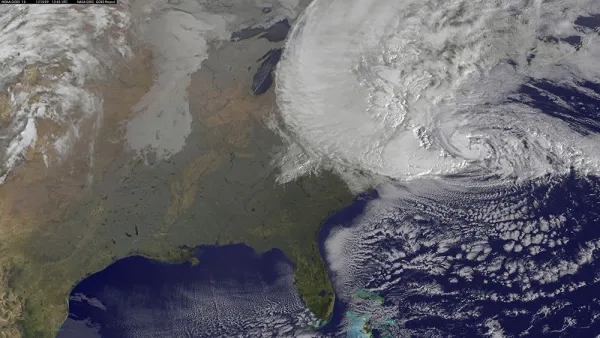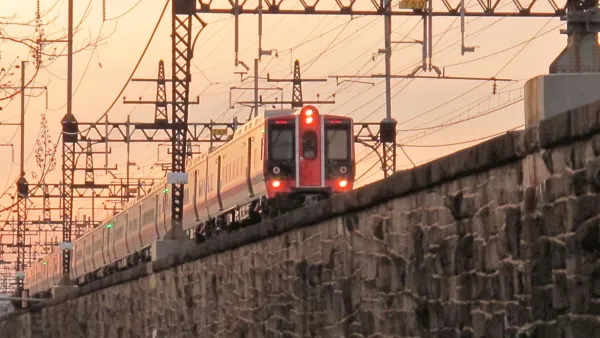Resilience, encompassing infrastructure, governance, economic strength, and social cohesion, is critical for cities to mitigate rising climate risks like flooding, wildfires, and heat, ensuring long-term recovery and adaptability.

As climate risks like hurricanes, wildfires, and sea-level rise become more frequent and severe, resilience — the ability of a community to recover and adapt — is emerging as a critical factor in determining where people choose to live. A house on high ground may avoid flooding, but without resilient infrastructure and governance, surrounding roads, utilities, and property values may still deteriorate. AlphaGeo, a climate modeling firm, highlights resilience through 28 factors such as infrastructure investment and social cohesion, creating a comprehensive view of how cities can withstand and rebound from climate-related adversity.
Cities like Norfolk, Virginia, and Placer County, California, exemplify resilience in action. Norfolk, plagued by rising seas and storm surges, has integrated sea-level rise into its urban planning, investing in flood walls, pump stations, and community-focused measures like home elevation. Meanwhile, wildfire-prone Placer County has implemented aggressive forest management and Firewise programs, demonstrating how proactive strategies can protect communities even in high-risk areas. Both regions showcase the importance of local leadership and innovative planning in tackling climate challenges.
Resilience is not solely about physical defenses; it also relies on economic strength, good governance, and social cohesion. Cities like Virginia Beach have made hard decisions, such as restricting development in vulnerable areas and raising taxes for climate mitigation. Additionally, strong community ties can significantly influence outcomes during crises, as seen in past disasters where neighborhoods with active social networks fared better. These examples underline the importance of both hard infrastructure and community-driven efforts in building climate resilience.
Ultimately, while no location is entirely safe from climate risks, a blend of robust infrastructure, smart public investments, and cohesive communities can mitigate impacts and sustain long-term prosperity. AlphaGeo’s data-driven insights provide a roadmap for homeowners and policymakers alike to navigate a volatile climate future, offering a clearer picture of how to align risk and resilience in choosing where to live and how to prepare for what is ahead.
FULL STORY: See if your city is poised to bounce back from the next climate disaster

National Parks Layoffs Will Cause Communities to Lose Billions
Thousands of essential park workers were laid off this week, just before the busy spring break season.

Retro-silient?: America’s First “Eco-burb,” The Woodlands Turns 50
A master-planned community north of Houston offers lessons on green infrastructure and resilient design, but falls short of its founder’s lofty affordability and walkability goals.

Delivering for America Plan Will Downgrade Mail Service in at Least 49.5 Percent of Zip Codes
Republican and Democrat lawmakers criticize the plan for its disproportionate negative impact on rural communities.

Test News Post 1
This is a summary

Test News Headline 46
Test for the image on the front page.

Balancing Bombs and Butterflies: How the National Guard Protects a Rare Species
The National Guard at Fort Indiantown Gap uses GIS technology and land management strategies to balance military training with conservation efforts, ensuring the survival of the rare eastern regal fritillary butterfly.
Urban Design for Planners 1: Software Tools
This six-course series explores essential urban design concepts using open source software and equips planners with the tools they need to participate fully in the urban design process.
Planning for Universal Design
Learn the tools for implementing Universal Design in planning regulations.
EMC Planning Group, Inc.
Planetizen
Planetizen
Mpact (formerly Rail~Volution)
Great Falls Development Authority, Inc.
HUDs Office of Policy Development and Research
NYU Wagner Graduate School of Public Service





























